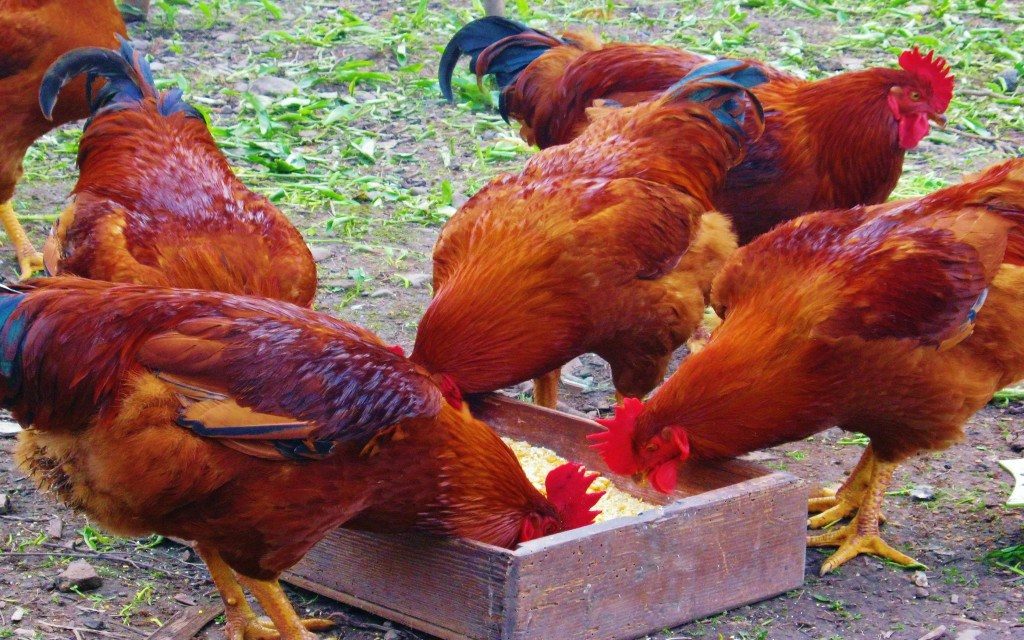The typical farmer raising Kienyeji chickens does not have to stick to a very rigid feeding routine. Typically, the farmer will start with chicken mash up to 8 weeks and then transition the chickens to growers mash from 8 weeks onwards. After that, the chicken feed is supplemented with other food waste from the house such as ugali as well as with fishmeal and the feeds they pick up when roaming about in a free range environment.

From 8 weeks onwards, you can begin supplementing their formulated feed such as growers mash with other food sources which should mainly consists of grains. From here, some farmers will simply feed the chickens on maize, some soya and fish meal. If your kienyeji are layers, you may also try and supplement their feed with some layers’ mash in order to boost laying performance. However, there is still a great deal of confusion on what to feed your kienyeji beyond the age of eight weeks. Farmers have varied approaches. While some will go the route of the formulated feeds, some allow the chickens to fully forage in order to cut down on the cost of production. To clear the confusion, one company has entered the fray in order to offer farmers a reliable kienyeji mash that they can feed their chickens from start to finish. This is Unga Farm Care and their Fugo Kienyeji range is proving popular with many commercial kienyeji farmers in Kenya.
Unga Farm Care Kienyeji Mash
This is a product that many Kienyeji farmers have been waiting for a long time. The manufactured Unga Farm Care kienyeji mash is already available in numerous outlets across the country.
The Fugo kienyeji range has been specially formulated to serve as a supplemental diet for kienyeji chickens.
The product has been formulated in such a way that it is suitable for both birds that are free ranging and those that are kept in confinement. This is product is a godsend for the industry where hundreds of thousands of farmers across the country are already involved in small to medium scale kienyeji chicken farming.
You can’t feed the same kind of formulation to the bird right from hatching to slaughter. It is important to keep in mind that every stage of the bird’s growth has unique nutritional requirements and these must be provided in order to attain the required growth and production. The bird will only reach its genetic potential if its nutritional requirements are adequately met.
Unga Farm Care has formulated different categories of poultry feeds that will cater for each and every stage of the bird’s growth. This will ensure that there is better productivity and maximum return on investment for the farmer.
While kienyeji birds are generally considered has hardy birds, they should be provided with good housing, the right stocking density, vaccination and optimal feeding programs to help the birds hit their genetic potential.